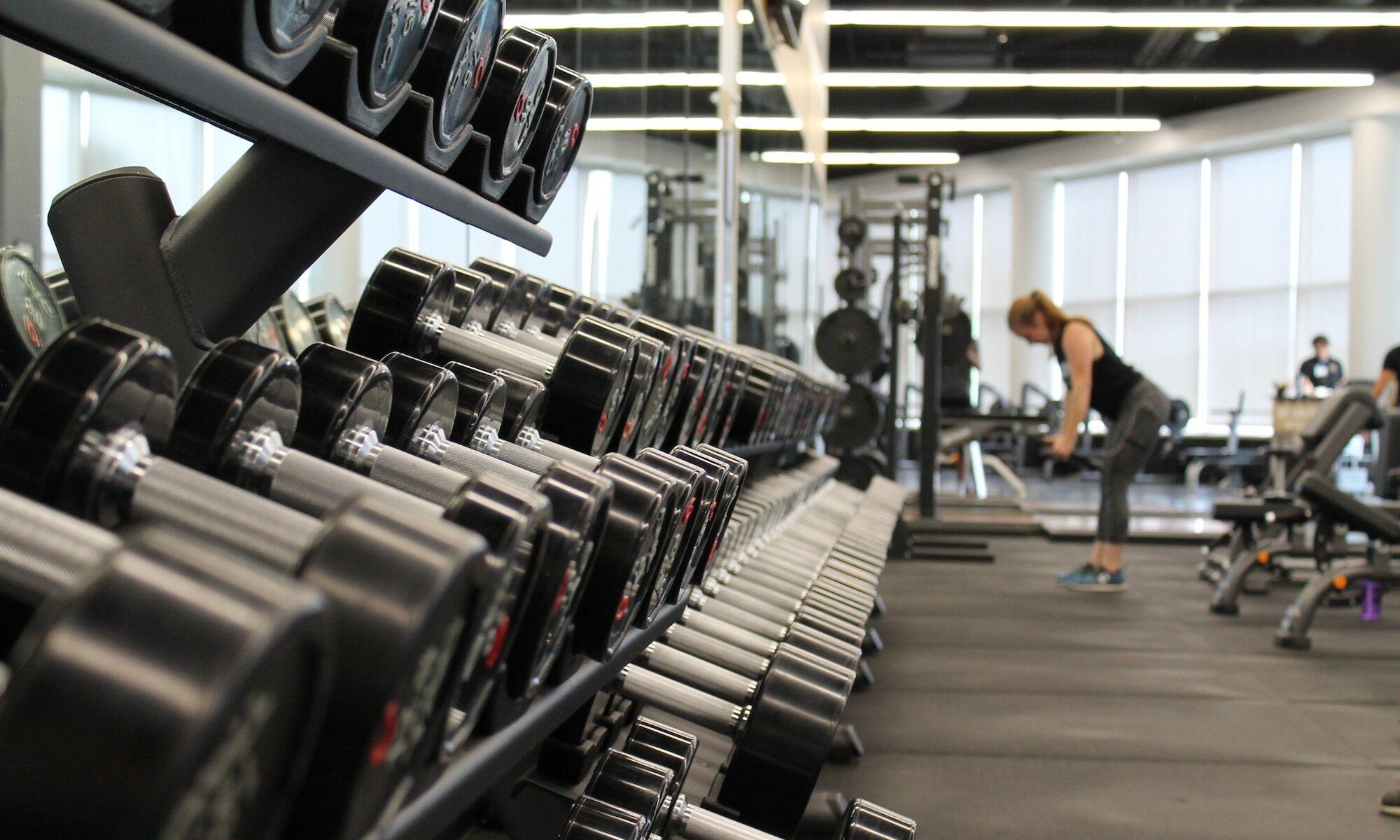Are you an athlete feeling overwhelmed by the pressures of competition and the constant demand for peak performance? Look no further, because this article has got you covered. “Dealing With Stress: Techniques For Athletes” provides valuable insights and techniques specifically tailored for athletes to effectively manage and cope with stress. Whether you’re a beginner or a seasoned pro, these techniques are designed to help you maintain balance, focus, and mental well-being, ultimately improving your overall performance on and off the field. So, let’s take a closer look at these practical strategies and start relieving that stress today!
Understanding Stress in Athletes
The impact of stress on athletes
Stress can have a significant impact on athletes both mentally and physically. When athletes experience stress, it can affect their focus, motivation, and overall performance. Stress can manifest in various ways, such as nervousness before a competition, difficulty sleeping, or feeling overwhelmed by expectations. It is important for athletes to understand how stress can affect their performance and take steps to manage it effectively.
Common sources of stress for athletes
Athletes face numerous sources of stress, both on and off the field. Common sources of stress in the sports world include intense competition, pressure to perform well, fear of failure, injuries, and demands from coaches, teammates, and fans. Additionally, athletes might also experience stress related to academic responsibilities, personal relationships, and time constraints. By identifying these sources of stress, athletes can begin to address them and develop strategies to manage the associated pressure.
Recognizing the signs of stress in athletes
It is crucial for athletes to be able to recognize the signs of stress in themselves and others. Common signs of stress in athletes include irritability, difficulty concentrating, changes in appetite or sleep patterns, decreased motivation, and physical symptoms like headaches or fatigue. By being aware of these signs, athletes can seek appropriate support and implement stress management techniques when needed.
Developing a Stress Management Plan
Identifying personal stress triggers
Every athlete has their own unique set of stress triggers. Identifying these triggers is an essential step in developing an effective stress management plan. Athletes can reflect on past experiences and situations that have caused them stress and consider what factors contributed to their feelings of pressure or anxiety. By recognizing these triggers, athletes can proactively take steps to either avoid or better cope with them in the future.
Setting realistic goals
Setting realistic goals is another crucial aspect of stress management in athletes. Unrealistic or overly ambitious goals can contribute to feelings of pressure and stress. By setting attainable goals that are in line with their abilities and resources, athletes can reduce the potential for stress and increase their chances of success. It is important for athletes to focus on both short-term and long-term goals and regularly evaluate and adjust them as needed.
Creating effective time management strategies
Time management is key for athletes in order to alleviate stress. Athletes often face demanding schedules with multiple commitments, such as training sessions, competitions, school, and personal responsibilities. By creating effective time management strategies, athletes can prioritize tasks, allocate time for rest and recovery, and reduce the likelihood of feeling overwhelmed. Techniques such as creating a structured schedule, utilizing technology and tools for organization, and incorporating breaks and rest periods can all contribute to improved time management and reduced stress levels.
Cognitive Techniques
Practicing positive self-talk
Positive self-talk is a powerful cognitive technique that can help athletes manage stress and enhance their performance. By practicing positive self-talk, athletes can replace negative thoughts and self-doubt with encouraging and uplifting statements. This technique can help boost confidence, maintain focus, and alleviate feelings of stress or anxiety. Athletes can incorporate positive affirmations and self-motivating statements into their daily routine to cultivate a more positive mindset.
Utilizing visualization and mental imagery
Visualization and mental imagery techniques involve creating vivid mental images of successful performances or desired outcomes. By mentally rehearsing and visualizing success, athletes can enhance their confidence, improve focus, and reduce stress. This technique can be particularly useful when preparing for a competition or facing a challenging situation. Athletes can practice visualization during training sessions or incorporate it into their pre-performance routines.
Implementing cognitive restructuring
Cognitive restructuring involves identifying and challenging negative or irrational thoughts and replacing them with more realistic and positive beliefs. This technique helps athletes shift their perspective and develop a more adaptive and constructive mindset. By recognizing and challenging negative thought patterns, athletes can reduce stress and improve their ability to cope with pressure. Techniques such as reframing, questioning cognitive distortions, and focusing on strengths and accomplishments can all contribute to effective cognitive restructuring.
Physical Techniques
Engaging in regular physical exercise
Regular physical exercise is not only beneficial for athletes’ physical health but also for managing stress. Exercise has been shown to reduce stress levels, improve mood, and increase the production of endorphins, which are natural mood enhancers. Incorporating regular exercise into their routine can help athletes release tension, clear their minds, and improve their overall well-being. Whether it’s through team practices, individual workouts, or recreational activities, finding enjoyable ways to stay physically active can be a valuable stress management technique.
Utilizing relaxation techniques like deep breathing and progressive muscle relaxation
Relaxation techniques such as deep breathing and progressive muscle relaxation can have a calming effect on the body and mind. Deep breathing involves taking slow, deep breaths to slow down the heart rate and promote relaxation. Progressive muscle relaxation, on the other hand, involves consciously tensing and then relaxing different muscle groups to release tension and promote a sense of calm. These techniques can be practiced during stressful situations, before competitions, or as part of a regular relaxation routine.
Incorporating mindfulness and meditation practices
Mindfulness and meditation practices can help athletes cultivate a state of present-moment awareness and promote relaxation. Mindfulness involves focusing on the present moment without judgment, allowing athletes to become more attuned to their thoughts and emotions. Meditation practices, such as guided meditation or mindfulness meditation, can help athletes quiet their minds, reduce stress, and improve concentration. By incorporating mindfulness and meditation into their daily routine, athletes can enhance their overall well-being and resilience to stress.
Emotional Techniques
Expressing emotions through journaling
Journaling is a powerful tool for athletes to express and process their emotions. Writing about their thoughts, feelings, and experiences can provide a sense of relief and clarity. Journaling allows athletes to reflect on their emotions, identify any patterns or triggers, and gain insights into their mental and emotional well-being. By incorporating journaling into their routine, athletes can enhance self-awareness, manage stress, and promote emotional well-being.
Seeking support from friends, family, or a therapist
Reaching out for support is an important aspect of managing stress for athletes. By talking to trusted friends, family members, coaches, or a therapist, athletes can share their experiences, concerns, and emotions. Having a supportive network can provide a sense of validation, guidance, and comfort. Friends and family can offer a listening ear and encouragement, while therapists or sports psychologists can provide professional insights and techniques to manage stress effectively.
Practicing self-compassion and empathy
Practicing self-compassion and empathy towards oneself is essential for athletes dealing with stress. It is common for athletes to be critical of themselves and put excessive pressure on their performance. By cultivating self-compassion, athletes can acknowledge and accept their limitations, mistakes, and setbacks, treating themselves with kindness and understanding. Additionally, developing empathy towards others can also help athletes create a supportive and compassionate environment, reducing stress levels and promoting emotional well-being.
Nutritional Techniques
Maintaining a balanced diet for optimal energy levels
Nutrition plays a vital role in an athlete’s overall well-being and stress management. Eating a balanced diet that includes a variety of nutrient-dense foods can provide athletes with the energy and nutrients they need to perform at their best. Proper nourishment supports the body’s ability to handle stress and recover from physical and mental demands. Athletes should aim to incorporate whole grains, lean proteins, fruits, vegetables, and healthy fats into their meals and snacks to maintain optimal energy levels.
Avoiding excessive caffeine and alcohol consumption
While caffeine and alcohol may be tempting for athletes seeking quick energy or relaxation, excessive consumption of these substances can negatively impact stress levels. Caffeine can increase feelings of anxiety and disrupt sleep patterns, contributing to heightened stress. Alcohol can impair cognitive function, affect recovery, and interfere with quality sleep. Athletes should be mindful of their caffeine intake and avoid excessive alcohol consumption to support effective stress management.
Incorporating stress-reducing foods and supplements
Certain foods and supplements can have stress-reducing properties and support athletes in managing their stress levels. Foods rich in omega-3 fatty acids, such as fatty fish, walnuts, and flaxseeds, can help reduce inflammation and promote brain health. Magnesium-rich foods like spinach, avocados, and almonds can support relaxation and reduce muscle tension. Additionally, herbal supplements like chamomile tea or adaptogens such as ashwagandha or rhodiola can have a calming effect. Athletes should consult with a healthcare professional or nutritionist to determine appropriate supplements and explore stress-reducing foods.
Sleep and Rest Techniques
Establishing a consistent sleep routine
Adequate sleep is crucial for athletes’ physical and mental performance. Establishing a consistent sleep routine can help athletes prioritize rest and recovery, reduce stress levels, and optimize their overall well-being. Athletes should aim to go to bed and wake up at the same time each day to regulate their body’s internal clock. Creating a sleep-friendly environment, avoiding electronic devices before bed, and engaging in relaxing activities can all contribute to better sleep quality.
Creating a relaxing pre-sleep routine
A relaxing pre-sleep routine can help athletes unwind and prepare their bodies and minds for a restful night’s sleep. Engaging in activities such as reading, taking a warm bath or shower, practicing gentle stretching or yoga, or listening to calming music can promote relaxation and reduce stress. By dedicating time to wind down before bed, athletes can improve sleep quality and enhance their ability to manage stress effectively.
Implementing power naps and rest days
In addition to prioritizing regular sleep, athletes can benefit from incorporating power naps and rest days into their routine. Power naps of around 20 minutes can help refresh and recharge athletes, especially during days with minimal sleep or high levels of physical and mental activity. Rest days, on the other hand, allow athletes to give their bodies and minds a break, promoting recovery and reducing the risk of burnout. By recognizing the importance of rest and incorporating these practices, athletes can manage stress and maintain their overall well-being.
Utilizing Performance Enhancement Techniques
Setting achievable goals and celebrating accomplishments
Setting achievable goals is essential for athletes to experience a sense of progress and accomplishment. By breaking down larger goals into smaller, manageable steps, athletes can maintain motivation, reduce stress, and enhance their performance. Athletes should also take the time to celebrate their accomplishments, no matter how small. Celebrating milestones can boost confidence and provide a positive reinforcement loop, contributing to improved mental well-being and stress management.
Focusing on the process rather than the outcome
Focusing on the process rather than solely on the outcome can help athletes manage stress and maintain a balanced perspective. By directing their attention to the present moment and the steps necessary to achieve their goals, athletes can reduce anxiety and increase their enjoyment of the journey. Emphasizing effort, growth, and learning can cultivate resilience and create a more sustainable approach to managing stress. While outcomes are important, placing too much emphasis on them can increase pressure and hinder performance.
Utilizing mental performance strategies like mental rehearsal and attention control
Mental performance strategies can enhance athletes’ ability to manage stress and perform at their best. Techniques such as mental rehearsal involve mentally practicing and visualizing successful performances or specific skills. This technique can boost confidence, improve focus, and reduce stress or anxiety related to competitions. Attention control techniques, such as focusing on relevant cues and shifting attention as needed, can also help athletes manage distractions, maintain concentration, and reduce stress. By incorporating mental performance strategies into their training and competition routines, athletes can optimize their performance and stress management skills.
Implementing Time Management Strategies
Prioritizing tasks and setting realistic deadlines
Effective time management is crucial for athletes to balance their various commitments and reduce stress. By prioritizing tasks based on importance and urgency, athletes can allocate their time and energy efficiently. Setting realistic deadlines and breaking tasks into smaller, manageable steps can help athletes stay organized and alleviate feelings of overwhelm. By understanding the demands of their sport, academics, and personal life, athletes can create a time management strategy that suits their individual needs.
Creating a structured schedule with breaks and rest periods
A structured schedule can provide athletes with a framework to effectively manage their time and reduce stress. By allocating specific time blocks for different activities, including training, studying, rest, and personal time, athletes can create a sense of structure and predictability in their routine. It is important to incorporate regular breaks and rest periods to avoid burnout and promote productivity. By adhering to a structured schedule, athletes can optimize their time management, reduce stress, and increase their overall well-being.
Utilizing tools and technology for efficient organization
Tools and technology can be valuable assets for athletes seeking efficient organization and time management. Various apps, calendars, or task management tools can help athletes keep track of their schedules, set reminders, and break down tasks. Online platforms or shared calendars can facilitate communication and coordination with teammates, coaches, and support staff. By harnessing the power of technology, athletes can streamline their organization and reduce stress associated with missed deadlines or forgotten commitments.
Monitoring and Adjusting Stress Management Techniques
Regularly assessing stress levels and effectiveness of chosen techniques
It is important for athletes to regularly assess their stress levels and the effectiveness of the techniques they are utilizing. By monitoring their stress levels, athletes can identify any changes or trends that may indicate a need for adjustment in their stress management plan. Regular self-reflection and evaluation can help athletes recognize the impact of certain techniques and identify which ones are most effective for them personally.
Making necessary adjustments to the stress management plan
As athletes evaluate their stress levels and the effectiveness of their chosen techniques, they may find it necessary to make adjustments to their stress management plan. This may involve trying new techniques, modifying existing ones, or seeking additional support or resources. Flexibility and adaptability are key in managing stress, as athletes’ circumstances and needs may change over time. By being open to making adjustments, athletes can continually refine their stress management plan to best suit their evolving needs.
Seeking professional help when needed
In some cases, managing stress as an athlete may require professional support. Athletes should not hesitate to seek the expertise of sports psychologists, therapists, or other healthcare professionals who specialize in stress management. These professionals can provide valuable guidance, techniques, and strategies tailored specifically to athletes’ needs. Seeking professional help is a sign of strength and a proactive step towards developing effective stress management skills.
In conclusion, understanding and managing stress is crucial for athletes to perform at their best and maintain their overall well-being. By implementing various stress management techniques, athletes can develop the necessary skills to navigate the pressures, expectations, and challenges of sports and life. With a comprehensive stress management plan that encompasses cognitive, physical, emotional, nutritional, and time management techniques, athletes can thrive and excel in their athletic pursuits while maintaining their mental and physical health.


